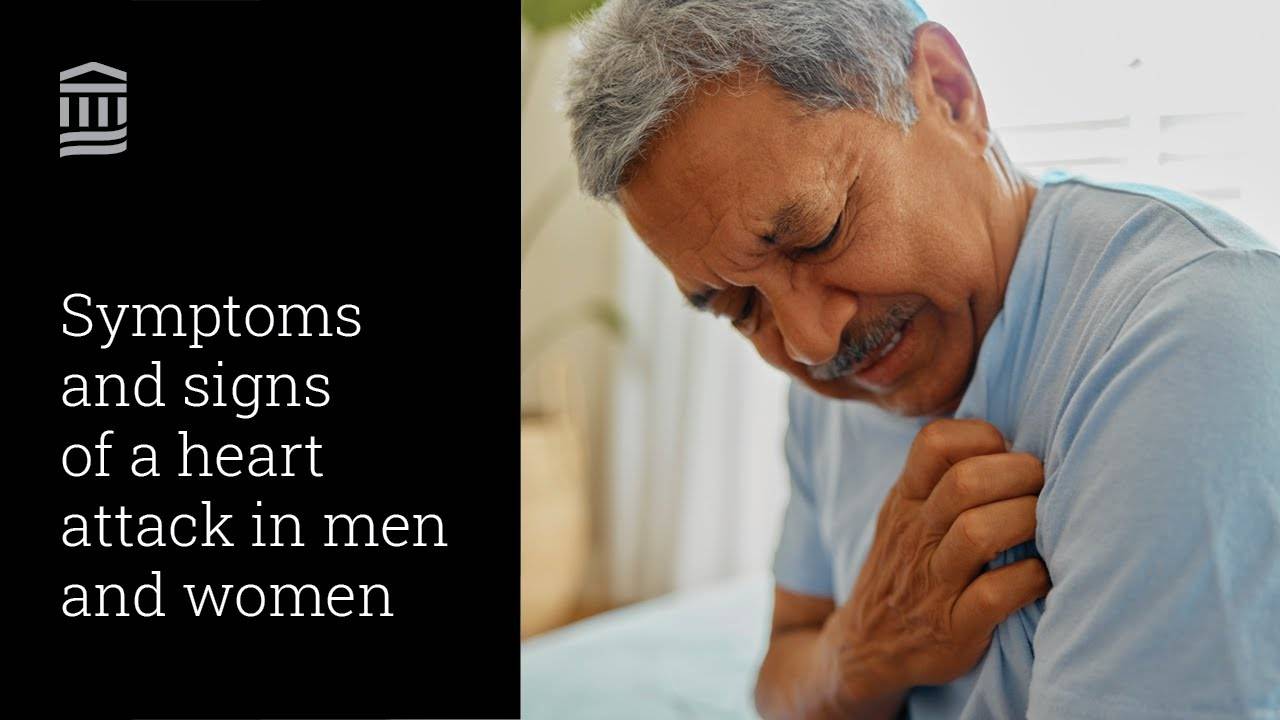6 Warning Signs of a Heart Attack and How to React Quickly
Heart attacks are a serious medical emergency that can happen without warning. The key to surviving and reducing long-term damage lies in recognizing the warning signs and acting quickly. According to health experts, early recognition and swift action can significantly improve survival rates and recovery outcomes. This article breaks down the common warning signs of a heart attack, how to react effectively, and steps to reduce your risk.
What is a Heart Attack?
A heart attack, or myocardial infarction, occurs when blood flow to the heart is blocked, often due to a buildup of plaque in the arteries. This blockage prevents oxygen-rich blood from reaching the heart muscle, leading to tissue damage. Without immediate treatment, a heart attack can cause severe complications or even death.
Heart attacks can present differently in men and women, but understanding the key symptoms can help anyone recognize when to seek help.
1. Chest Pain or Discomfort
Description: This is the most common and recognizable symptom of a heart attack. It often feels like pressure, tightness, or squeezing in the chest. Some people describe it as feeling like an "elephant" is sitting on their chest.
What to Know:
- The pain may radiate to the arms, back, neck, jaw, or stomach.
- It may start slowly and build up over time, or come on suddenly.
Why It Happens: The blockage in an artery reduces blood flow to the heart, causing pain due to oxygen deprivation in the muscle.
What to Do: If you experience chest pain that lasts more than a few minutes or goes away and comes back, call emergency services immediately.
2. Shortness of Breath
Description: Difficulty breathing, even when resting, is another early sign of a heart attack. It can feel like you’re gasping for air or cannot catch your breath.
Why It Happens: When the heart struggles to pump blood effectively, oxygen delivery to the rest of the body is reduced.
What to Do:
- Sit down and try to remain calm while calling for help.
- Avoid physical exertion as it can worsen the condition.
3. Nausea and Vomiting
Description: Many people mistake these symptoms for food poisoning or stomach flu. However, nausea and vomiting, particularly when paired with chest pain or dizziness, can signal a heart attack.
Why It Happens: Stress on the heart can disrupt the digestive system, leading to gastrointestinal distress.
What to Do: If nausea is accompanied by other heart attack symptoms, seek medical attention immediately. Don't dismiss it as just an upset stomach.
4. Cold Sweats
Description: A sudden outbreak of cold sweat is a classic warning sign of a heart attack. This is not the same as sweating from exercise or heat—it feels clammy and unusual.
Why It Happens: The body releases stress hormones like adrenaline during a heart attack, which can trigger sweating.
What to Do:
- Sit down in a cool, calm environment while waiting for emergency help.
- Avoid strenuous activity that could exacerbate the symptoms.
5. Unusual Fatigue or Weakness
Description: Extreme tiredness or feeling weak for no clear reason can occur days or even weeks before a heart attack, especially in women.
Why It Happens: The heart works harder when it’s not receiving enough oxygen, leading to exhaustion.
What to Do: If fatigue is persistent and paired with other symptoms, consult a healthcare provider immediately.
6. Lightheadedness or Dizziness
Description: Feeling faint, dizzy, or lightheaded can signal restricted blood flow to the brain, a symptom often linked to heart attacks.
Why It Happens: Reduced blood flow caused by a heart attack may lead to a drop in blood pressure, causing dizziness.
What to Do:
- Sit or lie down to prevent fainting.
- Call for emergency assistance if this symptom doesn’t improve quickly
How Symptoms May Differ Between Men and Women
While chest pain is common in both genders, women are more likely to experience subtler symptoms such as:
- Nausea or vomiting.
- Back, jaw, or neck pain.
- Severe fatigue.
This difference often delays diagnosis in women, making it crucial for everyone to recognize less obvious signs of a heart attack.
How to React Quickly
1. Call Emergency Services Immediately: Time is of the essence. Dial 911 or your local emergency number at the first sign of a heart attack. Do not attempt to drive yourself to the hospital.
2. Administer Aspirin: If advised by a professional, chewing a low-dose aspirin can help prevent further clotting.
3. Perform CPR: If the person is unconscious and not breathing, perform CPR if trained to do so. Use an automated external defibrillator (AED) if available.
4. Stay Calm and Comfortable: Encourage the affected person to sit or lie down while waiting for help. Reassure them and avoid unnecessary movement.
Prevention is Better Than Cure
While quick reactions can save lives, preventing a heart attack is even better. Here are some actionable tips:
- Adopt a Heart-Healthy Diet: Eat foods rich in fiber, lean proteins, and healthy fats while avoiding trans fats and excess sugar.
- Stay Physically Active: Aim for at least 150 minutes of moderate exercise weekly.
- Quit Smoking: Smoking increases heart disease risk significantly. Seek support if needed to quit.
- Regular Health Screenings: Monitor your cholesterol, blood pressure, and blood sugar levels regularly.
- Manage Stress: Practice mindfulness, yoga, or meditation to keep stress levels in check.
Final Thoughts
Heart attacks can happen to anyone, but knowing the warning signs can save lives. Whether it’s chest pain, shortness of breath, or unexplained fatigue, never ignore your body’s signals. Acting quickly when symptoms arise can make all the difference in recovery outcomes.
By adopting preventive measures and staying informed, you can reduce your risk and lead a heart-healthy life. Always prioritize regular check-ups and lifestyle adjustments to keep your heart in optimal shape. Remember, every second counts—recognize, react, and stay safe.


